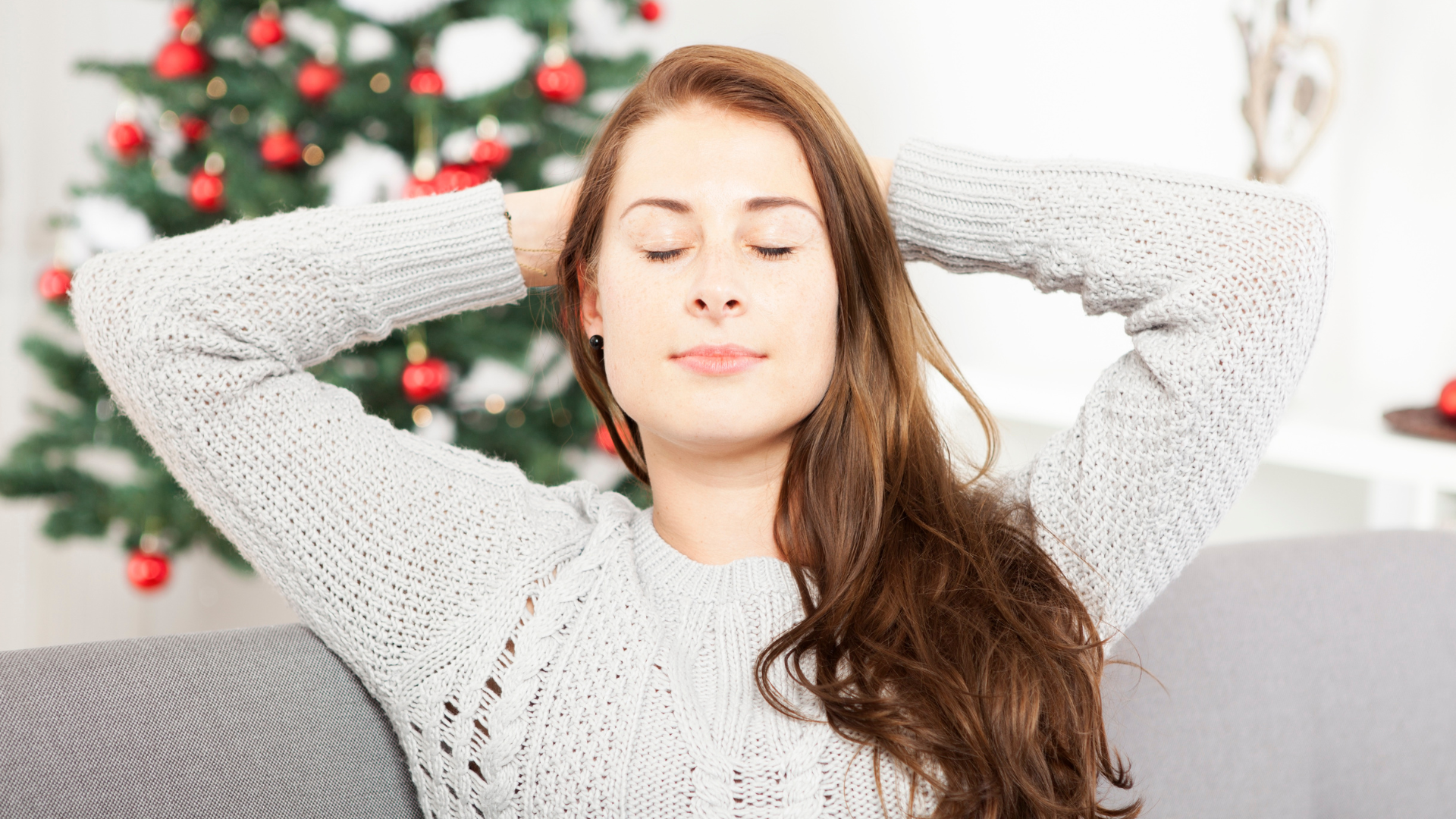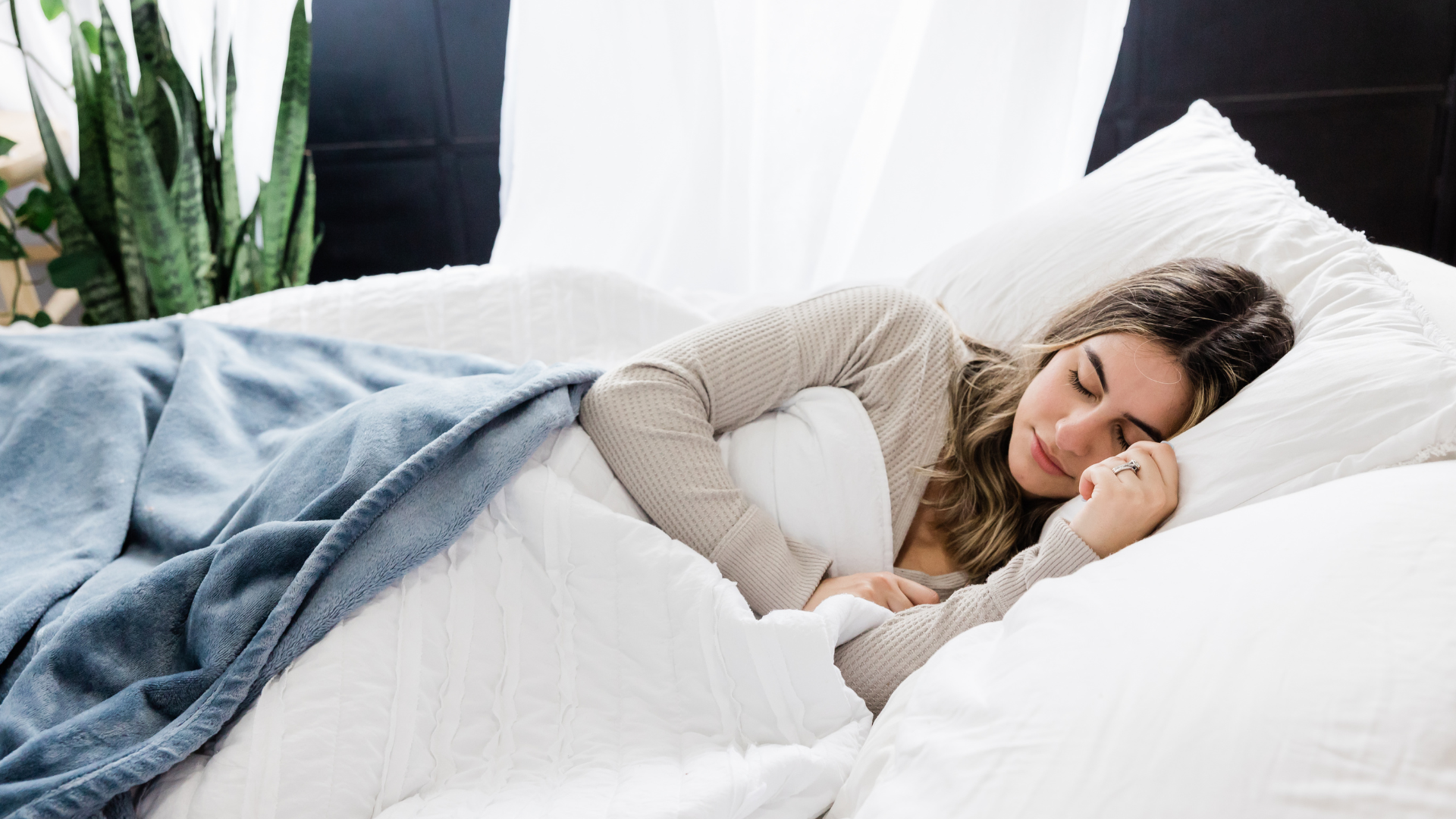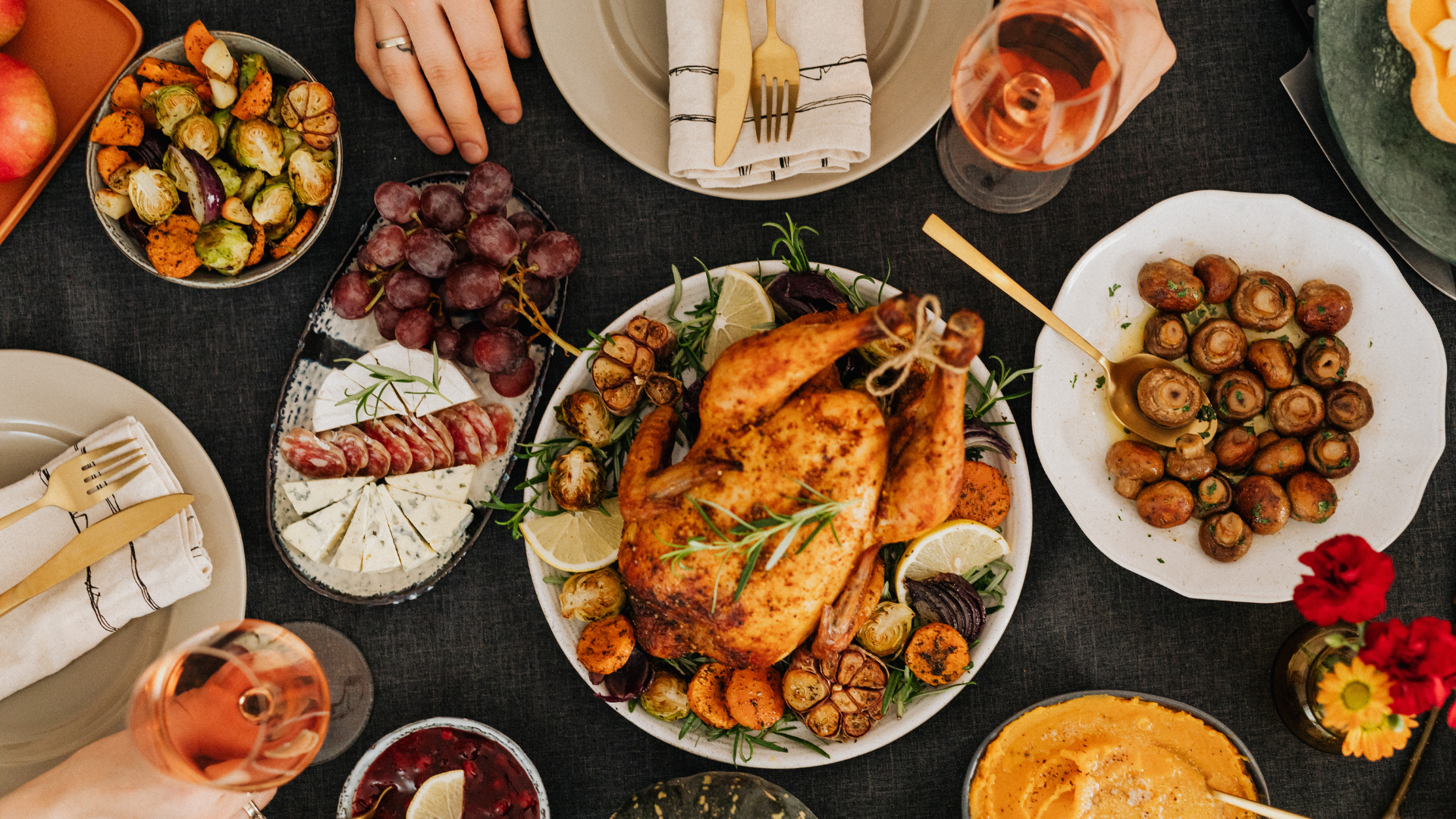
The holidays are here which means time for fun, festivities and family. But, while tis’ the season to be jolly, it’s also the season for increased stress, late nights, and overindulgence on the food and alcohol front, all of which can lead to hormone imbalances.
To help you navigate this time of year we’ve created this hormone holiday survival guide that’s packed full of actionable tips and expert advice to get you and your hormones through the holidays.
Part One: Understanding Hormones and the Holiday Season
The holiday season is a time of joy and celebration, but it is also very challenging on your hormones. High levels of stress, changes to your regular routine, indulging in sugary treats, and colder weather keeping you indoors (and away from the gym) can all take their toll on your hormones.
Add in late-night Christmas parties and the tendency to put healthy habits on hold until the New Year, and it’s a recipe for disaster. There are many ways your hormones can be affected during the holiday season, which we will cover in more detail throughout this guide. However, let’s begin with one of the most significant factors – stress.
How Stress and Cortisol Impact Your Hormones
Cortisol is the body’s stress hormone and is released by the adrenal glands when you experience a stressful situation. It is meant to prepare your body for fight or flight. But during the holidays, when stress is common, cortisol levels can stay consistently elevated, which means big trouble for your hormones.
“High cortisol levels interfere with the body’s ability to produce and balance other key hormones,” explains Dr Monica Lascar, one of our hormone specialists. “It directly affects your progesterone, estrogen, and testosterone levels, which can cause symptoms like fatigue, poor sleep, weight gain, and mood swings.”
Elevated cortisol can also lead to blood sugar imbalances, suppress your immune system, and disrupt your circadian rhythm, which affects your hormones even further.
Signs of Hormone Imbalance
Understanding the early signs of hormone imbalance can help you address it before symptoms get worse.
While specific symptoms will vary depending on the hormones affected and between men and women, here are common red flags to watch for in the lead-up to the holidays:
- Trouble falling or staying asleep, despite feeling tired
- Persistent cravings for sugar or salty foods
- Mood swings
- Unexplained weight gain
- A sense of being constantly on edge or overwhelmed
- Brain fog or difficulty concentrating
- Constant low energy or fatigue
- Digestive issues
- Loss of sex drive
By recognising these symptoms, you can take proactive steps to restore your hormonal balance and feel your best throughout the holidays and beyond.
Part Two: Managing Holiday Stress
The holidays often feel like a balancing act as you navigate the Christmas crowds, juggle social commitments, find the perfect gifts, and deal with family dynamics. Without effective stress management, it can take its toll.
Stress may be an inevitable part of the holidays, but how you manage it can make a world of difference to your hormonal health.
“Chronic stress can lead to hormonal burnout, where your adrenal glands struggle to keep up with cortisol demands. This state can leave you feeling drained, anxious, and prone to illness. Managing stress is one of the most impactful things you can do for your hormones,” says Dr Shashi Prasad, our hormone health expert. Even small changes in how you handle stress can make a big difference in your overall wellbeing.”
Ways to Reduce Your Holiday Stress
- Practice Mindfulness and Meditation
Mindfulness helps anchor you in the present moment, reducing the stress and anxiety that can come from holiday planning. Taking time out of your day to be mindful shifts your focus away from the endless to-do lists and holiday pressure and helps you relax.
A key part of mindfulness is the practice of meditation. Just 5 – 10 minutes of meditation a day can lower cortisol levels and improve your sense of wellbeing. Start by finding a quiet place where you won’t be disturbed, close your eyes and focus on your breathing and you’ll begin to feel the stress melt away.
- Breathing Exercises
Controlled breathing techniques, like the 4-7-8 method, can quickly calm your nervous system, reducing your holiday stress and even improving your sleep.
Here’s how it works:
- Inhale through your nose for 4 seconds
- Hold your breath for 7 seconds
- Exhale slowly through your mouth for 8 seconds
Repeat this cycle three to five times to reduce your cortisol and feel instantly calmer.
- Physical Activity
Exercise is a natural stress reliever, so try to squeeze some in over the holidays. It doesn’t have to mean an intense gym session, as we know sticking to a strict fitness routine is usually saved for the New Year.
However, aiming for 30 minutes of light exercise each day can do wonders for managing stress during the holiday season.
Low-intensity exercises like yoga, walking, or even dancing to your favourite Christmas songs are fantastic ways to get moving, relieve stress, and boost your overall mood.
“Physical activity not only reduces cortisol but also boosts your endorphins, serotonin and dopamine, which relieves stress and is vital for mood regulation. Even light movement such as a 20-minute brisk walk can have profound benefits for both your mental and hormonal health,” says Dr Shashi Prasad.
- Setting Realistic Expectations
Holiday stress often comes from feeling like you have too much to do and too little time. Start by setting realistic expectations for yourself and realising that you can’t do it all. Simplifying your to-do list and prioritising what truly matters will help stave off stress and let you enjoy the holidays as you should.
Part Three: Sleep and Recovery
Sleep is the time when the body resets and repairs itself and is incredibly important to your hormone health. However, late-night parties and an increase in alcohol intake over the holidays mean that your body’s sleep-wake cycle can be heavily disrupted.
This can have a knock-on effect on your hormones and exacerbate your poor sleep, leading to a vicious cycle of hormone imbalance and sleepless nights that leave you feeling sapped of energy.
Sleep and Hormones
Sleep is essential to keeping your hormones balanced, and balanced hormones are essential for promoting healthy sleep patterns.
Here are just some of the hormones that affect your sleep:
- Melatonin
Known as the sleep hormone, it is produced in response to darkness, signalling to your body that it’s time to rest. Bright Christmas lights, late nights, and increased stress can suppress melatonin production and interfere with your sleep-wake cycle, making it harder to fall asleep over the holidays.
- Progesterone
Known for its calming effects, progesterone supports deep, restful sleep. Low progesterone can disrupt sleep quality, leaving you tossing and turning at night.
- Estrogen
This hormone plays a key role in regulating your sleep cycle. However, the stress of the holidays can cause estrogen levels to fluctuate, leading to restless nights and disrupted sleep patterns.
- Cortisol
Cortisol, your body’s stress hormone, is meant to drop at night to help you relax and fall asleep. But holiday stress or irregular routines can keep cortisol levels elevated, making it harder to drift off or stay asleep come bedtime.
“Consistent, quality sleep is non-negotiable for hormonal balance,” explains Dr Monica Lascar.
“Poor sleep disrupts melatonin production and leads to elevated cortisol levels the next day. It also impacts hunger-regulating hormones, making it harder to manage cravings and maintain a healthy diet during the Christmas period. Additionally, poor sleep can affect sex hormones, potentially causing estrogen dominance, which may exacerbate menopause symptoms or worsen PMS in women,” she says.
Good quality sleep is more important than ever during the holidays so you can get the proper rest and recovery you need to enjoy the season without feeling burnt out or constantly fatigued.
Tips for better sleep during the holidays:
- Stick to a consistent sleep schedule – Aim for 7–9 hours of sleep a night and try to go to bed and wake up at the same time. This may be easier said than done during the busy festive period, but being as consistent as you can will have a positive impact on your hormones.
- Keep your bedroom dark, quiet, and cool – This helps with melatonin production and allows you to drift off peacefully.
- Limit alcohol and caffeine intake – Avoid drinking alcohol and caffeine too close to bedtime, as they impact your sleep quality and reduce the amount of time you spend in deep sleep.
- Wind down before bed – Stop looking at screens an hour before bed, as artificial light can affect your sleep. Try calming rituals like reading, stretching, or taking a warm bath to set you up for a soothing night’s sleep.
Part Four: Nutrition for Hormone Balance
When it comes to the holidays, we are all partial to a little overindulgence.
Mince pies, Christmas pudding, and pigs in blankets are just some of the delicious treats to look forward to – not to mention the endless flow of festive cocktails and mulled wine.
Although Christmas is the time to relax, forget about calories, and enjoy yourself guilt-free, it’s still important to remember that what you put into your body has a direct impact on your hormones.
Foods high in sugar, fat, and salt that we all love during the holidays can inhibit your body’s ability to regulate key hormones like insulin, cortisol, and estrogen.
But the good news is, that you can still indulge in your favourite treats and support your hormones by simply making smart food choices.
By including healthy, hormone-friendly options, you’ll help stabilise your blood sugar, reduce inflammation, and keep your hormones healthy all the way into the New Year.
Foods That Support Hormonal Health
Here are some hormone-friendly foods that will support your hormone health this season:
- Omega-3 Fatty Acids
Found in fatty and oily fish like salmon and mackerel, as well as nuts and seeds like walnuts and chia seeds, omega-3s reduce inflammation and support the production of hormones like estrogen and progesterone.
- Magnesium-rich Foods
Leafy greens, almonds, and bananas are just some foods that are excellent sources of magnesium, which helps regulate cortisol and support relaxation.
- Foods High in Antioxidants
Berries, dark chocolate, and green tea are rich in antioxidants. These types of food help reduce oxidative stress and free radicals, both of which can disrupt hormone production.
- Protein and Healthy Fats
Lean meats like chicken and turkey, along with healthy fats like coconut oil or avocados, all provide essential amino and fatty acids that are needed for healthy hormones and blood sugar regulation.
“A diet rich in whole, unprocessed foods provides the nutrients your body needs to produce hormones like progesterone, estrogen, and testosterone,” says Dr Monica Lascar.
“Incorporating healthy fats and proteins into each of your meals helps stabilise blood sugar and prevents insulin spikes, supporting your hormones throughout the Christmas period.”
Limiting Your Alcohol
Treating yourself to a Christmas tipple or two is part of the festive fun, but it all comes down to moderation. You don’t have to be teetotal, but being mindful of how alcohol affects your hormones (and avoiding a few holiday hangovers in the process) will make your celebrations all the more enjoyable.
With family dinners, office parties, and New Year’s Eve celebrations, it’s easy for the drinks to add up. However, excessive alcohol consumption can seriously disrupt your hormones.
The NHS advises drinking no more than 14 units of alcohol per week, spread over three or more days. To put this into perspective, a pint of beer or a large glass of wine contains about 3 units each, so it doesn’t take long to exceed the weekly limit if you’re not careful.
Here are our tips to help you drink mindfully this festive season:
- Eat before you start drinking to slow down the alcohol’s effects, as the more tipsy you become, the more likely you are to drink excessively.
- Pace yourself by swapping every second drink for a non-alcoholic one.
- Choose low-alcohol beers and wines to reduce the impact on your hormones.
- Remember that you don’t always have to say yes to another drink.
- Mix up a tasty Christmas mocktail for a fun, alcohol-free alternative.
- Try alcohol-free beers, wines, and spirits. So, you can still get into the party spirit without sacrificing your hormones.
By making some of these simple changes, you can embrace the holiday season while keeping your hormones balanced and your celebrations hangover-free.
Part Five: Staying Connected and Supported
The holiday season is all about spending quality time with the ones you love most. When the holidays feel a little overwhelming, having your friends and family by your side is what makes it all worthwhile. Having a strong social support system during the holidays is not only good for your mental health but also for your hormones.
Positive social interactions with your family and friends help lower cortisol and boost your happiness hormones, including oxytocin, serotonin, dopamine, and endorphins which all promote feelings of joy and relaxation.
“Your emotional wellbeing is closely tied to your hormonal health,” says Dr Monica Lascar.
“Nurturing your relationships can be just as important as eating well, exercising or getting the right amount of sleep when it comes to your hormones.”
But navigating family relationships can be tricky, especially during Christmas when you spend time with family members you may not have seen in a while. So, understanding how to stay connected and supported during this time is a must.
Tips for Supporting Your Emotional Wellbeing
- Set Boundaries – Communicate your limits with loved ones. It’s okay to say no to events or tasks that feel overwhelming.
- Ask for Support – Let family and friends know if you’re feeling stressed or need help rather than bottling it up or trying to do it all yourself.
- Prioritise Meaningful Connections – Focus on quality over quantity when it comes to social interactions to avoid feeling burnt out or that you are doing too much.
The holidays are no doubt a challenging time for your hormones, but we hope this hormone holiday survival guide will help you enjoy the season to its fullest and ensure your holidays and hormones stay merry and bright.
How BHRT Can Help
At the Marion Gluck Clinic, we are the pioneers of Bioidentical Hormone Replacement Therapy (BHRT) offering a safe and effective way to address hormone imbalances, during the high-stress holiday season.
BHRT comes in various forms, from topical creams and gels to lozenges that you take orally.The treatment helps alleviate symptoms such as fatigue, mood swings, poor sleep, and persistent cravings, which often peak during the holidays, allowing you to fully enjoy the festive period.
“With over two decades of experience and a reputation for excellence, we have become a trusted authority in hormone health, dispelling hormone myths and empowering patients to reclaim their wellbeing through our BHRT treatment. What sets us apart is our holistic approach to hormone imbalance and our personalised treatment plans that have transformed the lives of thousands of men and women,” says Dr Monica Lascar.
To find out more about the safety and efficacy of BHRT then read our blog – BHRT: A Science-Backed Hormone Treatment.
If you are experiencing symptoms of hormone imbalance and think you need help over the holidays, book an online appointment with one of our expert hormone doctors now, and start your journey to better health this year and beyond.








